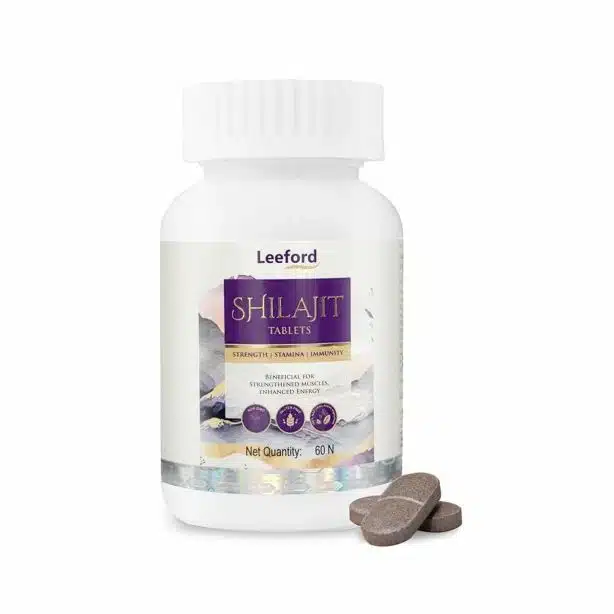The world of natural remedies is vast, but one herb that has gained significant attention in recent years is Ashwagandha. Also known as “Indian ginseng” or “winter cherry,” it is an ancient medicinal herb used in Ayurveda, a traditional Indian system of medicine.
This powerful herb, used for centuries in Ayurvedic medicine, is renowned for its numerous health benefits, from reducing stress to boosting energy.
But what is Ashwagandha, and why is it so widely used today? In this blog, we’ll explore everything you need to know about Ashwagandha, its benefits, potential side effects, and how it may even boost testosterone levels.
By the end, you’ll be better equipped to decide if Ashwagandha is right for you.
What is Ashwagandha
Ashwagandha (Withania Somnifera) is an evergreen shrub native to India, parts of Africa, and the Middle East. For over 3,000 years, it has been used in traditional Ayurvedic medicine to support overall wellness. In Sanskrit, the word Ashwagandha translates to the smell of a horse, a nod to the distinct odor of its roots and the belief that consuming it would impart the strength and vitality of a horse.
Primarily considered an adaptogen, Ashwagandha helps the body cope with stress. But its uses go far beyond that. From improving mental clarity to enhancing physical endurance.
Ashwagandha is a holistic herb that targets various health issues. It is available in pills, capsules, powders, gummies, and drops.
What is Ashwagandha made of
There are 35 active ingredients present in Ashwagandha, and these active compounds in Ashwagandha are what make this herb so powerful. Here’s a closer look at its key ingredients:
- Withanolides: These naturally occurring steroids are believed to be responsible for many of Ashwagandha’s benefits. They exhibit antioxidant, anti-inflammatory, and stress-relieving properties.
- Alkaloids: Alkaloids like somniferine provide calming effects and pain relief, further supporting Ashwagandha’s role in stress and pain management.
- Saponins: These compounds enhance the immune system by providing antioxidant properties that help in combating infections and diseases.
- Iron: Ashwagandha is also a source of iron, making it useful in treating anemia and improving overall vitality.
The coordination of these compounds allows Ashwagandha to address a range of health issues, from mental well-being to physical endurance.
What are Ashwagandha benefits
Ashwagandha is an incredibly versatile herb with a long list of health benefits. These benefits have been scientifically studied, and many people turn to Ashwagandha for both physical and mental wellness.
Let’s break down some of the most significant benefits of Ashwagandha into categories for easier understanding:
1. Reduces Stress and Anxiety
Ashwagandha is highly effective in helping the body manage stress. As an adaptogen, it helps maintain balance by reducing cortisol, a key stress hormone. Lowering cortisol levels leads to less anxiety, better mood, and an overall sense of calm. Regular use of Ashwagandha can make you feel more resilient in stressful situations while also combating physical signs of stress like fatigue and tension.
2. Boosts Testosterone and Enhances Male Fertility
Ashwagandha is beneficial for male reproductive health, particularly in enhancing low testosterone levels. Higher testosterone levels contribute to increased energy, better mood, and greater physical strength. It also supports male fertility by improving sperm quality, count, and motility, making it a popular supplement for men who are seeking to enhance their reproductive health naturally.
3. Improves Cognitive Function and Memory
Ashwagandha is well-regarded for its brain-boosting properties. It helps improve focus, memory, and overall cognitive function by promoting the health of nerve cells. Whether you’re looking to sharpen your mind or protect it from age-related decline, Ashwagandha works to keep your brain functioning optimally. It also aids in reducing mental fatigue, helping you stay more focused and alert throughout the day.
4. Promotes Muscle Growth and Physical Performance
Ashwagandha can aid in muscle growth and improve physical performance, making it a favorite among athletes and fitness enthusiasts. It helps build muscle mass, reduce body fat, and enhance endurance. Additionally, it supports faster recovery from exercise by reducing muscle soreness and inflammation. When paired with regular workouts, Ashwagandha can help you achieve greater physical strength and stamina.
5. Supports Heart Health
Ashwagandha promotes heart health by lowering cholesterol and triglyceride levels. It also helps regulate blood pressure, particularly when stress is a contributing factor. By promoting relaxation and balancing stress levels, Ashwagandha indirectly supports cardiovascular health, reducing the risk of heart-related conditions. It’s a natural way to keep your heart functioning smoothly while maintaining optimal circulation.
6. Boosts Immunity
Ashwagandha helps strengthen the immune system by supporting the production of white blood cells and protecting the body from oxidative stress. Its immune-boosting properties make it useful in fending off infections and keeping your body strong against external threats. Regular use may help reduce the frequency of illnesses and improve the body’s ability to recover from them.
7. Regulates Blood Sugar Levels
Ashwagandha helps maintain healthy blood sugar levels by improving insulin sensitivity and reducing blood sugar spikes. For individuals managing blood sugar-related issues, it can act as a natural aid to keep levels balanced. Its ability to lower stress also indirectly supports better blood sugar control since stress can lead to fluctuations in glucose levels.

8. Improves Sleep Quality
Ashwagandha is a natural remedy for better sleep. It promotes relaxation, reduces anxiety, and balances the sleep-wake cycle, helping you fall asleep more easily and enjoy deeper, more restful sleep. Whether you struggle with insomnia or simply want to enhance your sleep quality, Ashwagandha can support healthier sleep patterns, leaving you refreshed and energized in the morning.
What are Ashwagandha side effects
While Ashwagandha is generally safe for most people, there are some potential side effects to be aware of, especially if taken in high doses or for extended periods:
- Stomach upset: Some people may experience gastrointestinal issues like nausea, diarrhea, or an upset stomach.
- Drowsiness: Since Ashwagandha can have calming effects, it might cause drowsiness in some individuals, particularly if taken in large amounts.
- Allergic reactions: In rare cases, people may have allergic reactions like skin rashes or itching.
If any of these side effects occur, it’s advisable to consult your doctor and adjust your dosage or stop use.
Is Ashwagandha safe
Ashwagandha is generally safe for most people when used in moderate doses. However, certain groups should exercise caution. Pregnant and breastfeeding women are advised not to use Ashwagandha, as it can cause complications.
People with autoimmune conditions like lupus or rheumatoid arthritis should also consult their doctor before using it, as it may stimulate the immune system in ways that can exacerbate these conditions.
For healthy individuals, Ashwagandha is safe when used in appropriate amounts, but it’s always best to start with a lower dose to see how your body reacts.
Precautions
Ashwagandha has gained popularity for its numerous health benefits, but it’s important to use it carefully with precautions to ensure safe and effective results.
1. Start with a Low Dose
When introducing Ashwagandha into your routine, start with a lower dose, particularly if you’re new to it. Gradually increase the dosage under the guidance of a doctor to avoid any adverse reactions.
2. Pregnant or Breastfeeding Women
As already mentioned, pregnant or breastfeeding women should avoid taking Ashwagandha as it may cause complications, such as early labor or potential risks to the baby.
3. Underlying Health Conditions
People with autoimmune diseases, such as lupus or multiple sclerosis, should avoid Ashwagandha unless under medical supervision. Since it can boost immune activity, it may worsen these conditions.
Interactions
Ashwagandha can interact with certain medications, so it’s important to be cautious:
- Thyroid medications: Ashwagandha can increase thyroid hormone levels, potentially leading to hyperthyroidism in those on thyroid treatments.
- Sedatives: Ashwagandha’s calming effects can enhance the effects of sedative medications, which may result in excessive drowsiness or lethargy.
- Blood pressure medications: Ashwagandha may lower blood pressure, and when combined with medication, it could lead to an excessive drop, causing dizziness or fainting.
Before starting Ashwagandha, it’s wise to consult with your doctor, especially if you are taking any prescription medications.
Conclusion
Ashwagandha is a versatile and powerful herb with numerous health benefits. It supports stress relief, enhances cognitive function, boosts physical performance, and promotes heart health.
For those seeking a natural remedy for managing anxiety, improving sleep, or enhancing overall well-being, Ashwagandha can be an excellent choice.
Understanding what is Ashwagandha and how it works allows you to make informed decisions about incorporating it into your routine. While it’s generally safe, it’s essential to take precautions and consult with a doctor if you have underlying health conditions or take medications.
Frequently Asked Questions
What is the best time to take Ashwagandha?
The best time to take Ashwagandha depends on your goals. It’s recommended to take it in the evening before bed to reduce stress and improve sleep. However, if you’re using it to boost energy or improve physical performance, taking it in the morning or before a workout may be more beneficial.
Does Ashwagandha increase the size of body?
Ashwagandha doesn’t directly increase muscle or body size, but it does support muscle growth by boosting testosterone, improving recovery, and reducing muscle fatigue. When combined with regular strength training and a proper diet, it can contribute to increased muscle mass.
How long does it take Ashwagandha to work?
Ashwagandha typically starts showing noticeable effects within 1-2 weeks of consistent use. However, full benefits, such as improved sleep, reduced stress, or enhanced muscle growth, may take 6-8 weeks to show, depending on the individual and dosage.
Do Ashwagandha capsules cure Erectile Dysfunction?
Yes, Ashwagandha capsules may improve erectile function by supporting healthy testosterone levels and reducing stress. However, they should not be considered a cure for Erectile Dysfunction (ED). Consult a doctor for comprehensive treatment options.
Is it ok to take Ashwagandha every day?
Yes, taking Ashwagandha daily is generally safe, but it’s crucial to follow the recommended dosages and consult your doctor, particularly if you have existing health conditions or are on other medications.
When referencing outside resources, GoodrxMedicine always provides full citations. To learn more about the measures we use to maintain the quality of our content, please review our Content Information Policy.















